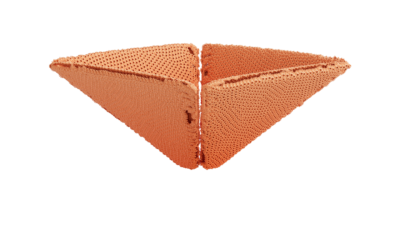What is Agog? • Why does Agog focus on XR? • What is immersive media? Spatial computing? XR? • What is Social XR? • How do I partner with Agog? • How do I submit a funding proposal to Agog? • Who is Agog?
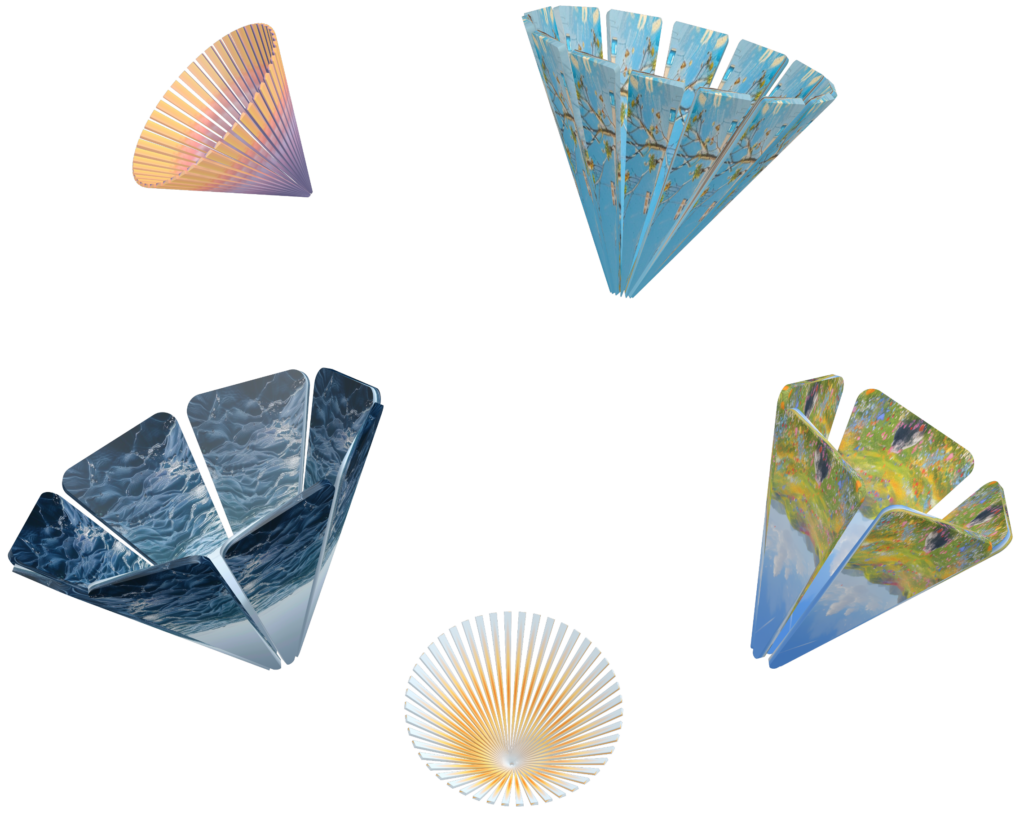
What is Agog?
To be agog is to be full of wonder, excitement, and awe. It’s a transformative experience. And that’s powerful stuff.
Which is why we’ve formed Agog: The Immersive Media Institute—to help creators and nonprofit leaders harness the power of extended reality (XR) to imagine a better future for all.
Agog is a philanthropic organization that brings together social-change agents, thinkers, and builders, helping them create new ways to learn, inspire, and collaborate with immersive technologies, such as virtual and augmented reality. We help equip our partners with creative, technical, and financial support to accelerate their work. And we gather and disseminate insights about the rapidly changing XR landscape to make sure everyone benefits from new learnings.
By creating connection, inspiring action, and empowering us to imagine new possibilities, XR can help put humans on an entirely new trajectory. And that leaves us agog.
Why does Agog focus on XR?
At Agog, we believe immersive technologies like extended reality (XR) have the unique ability to connect us with the earth, each other, and ourselves. With these new tools, we can experience new worlds, take a walk in another’s shoes, and even live life as a different species. With XR, we can imagine a better tomorrow. Immersive experiences can create a shift in awareness about what is possible—helping us humans engage more viscerally with each other and the most pressing issues of our time.
As we explore the power of XR and other immersive media to shape a better future, we also have a responsibility to help shape the future of these emerging technologies. XR itself is still young and impressionable. Now is the time to influence the trajectory, culture, and accessibility of the next great communications platform with voices and perspectives that have been historically underrepresented. By building communities, networks, and tools; establishing best practices; and helping to shape the ethics of this emerging field of technology, Agog can help XR grow into a medium we can all be proud of.
What is immersive media? Spatial computing? XR?
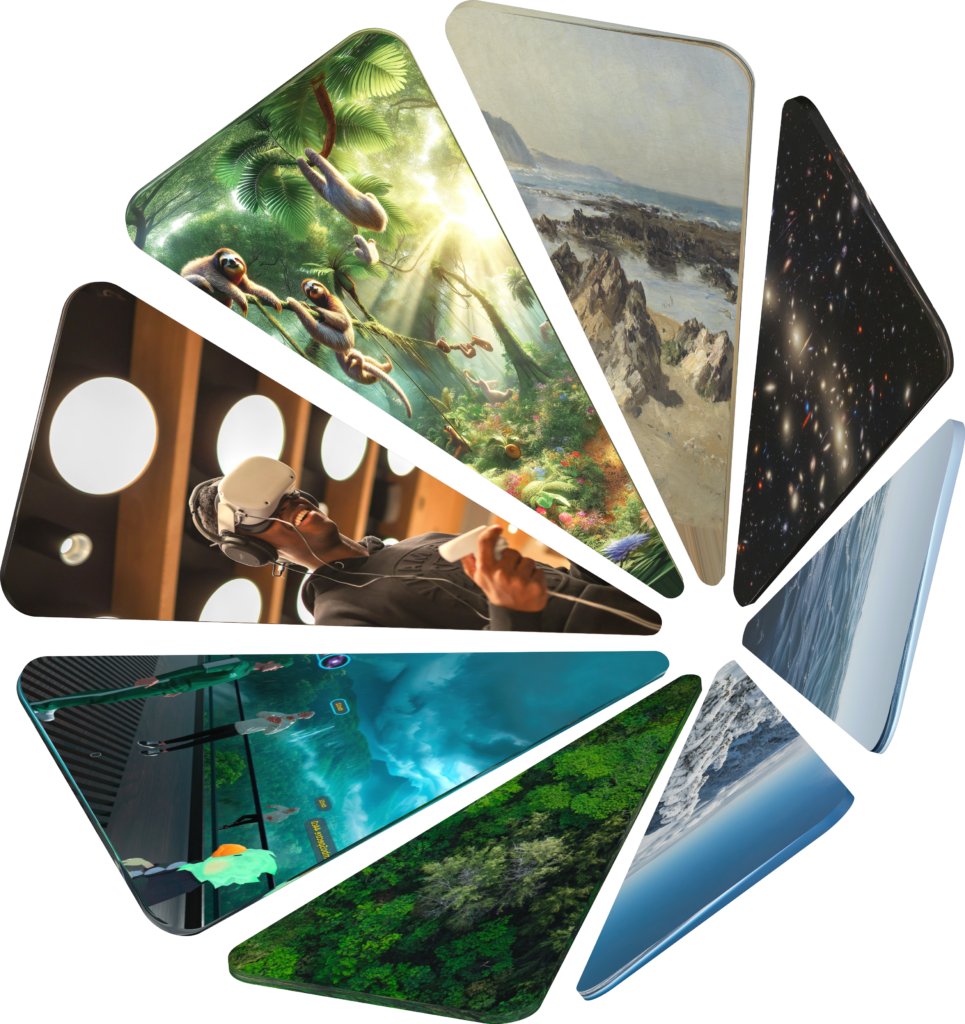
As with any emerging technology, there isn’t just one way of referring to it. Overall, these early terms describe technologies that are experiential—that work with your senses to make you feel as if you are truly experiencing, in a visceral, full-body way, what you are actually encountering through a series of screens and/or haptic feedback. Here at Agog, we prefer the term immersive media to encompass this set of technologies.
Some use spatial computing as an umbrella term. Spatial computing uses the space around you as a kind of user interface; it uses artificial intelligence, camera sensors, and other computer-vision components to track environments, people, and objects, and bring physical and digital worlds together in 3D.
Extended reality (XR) encompasses virtual reality (VR) and augmented reality (AR); people also use the phrase mixed reality (MR) when referring to a combination of these technologies.
To get more specific, virtual reality is a computer-generated simulation of a 3D environment that can be interacted with in a seemingly real or physical way using special electronic equipment.
Augmented reality is a technology that superimposes a computer-generated image on a user’s view of the real world providing a composite view. Unlike with virtual reality, which creates a totally artificial environment, AR users experience a real-world environment with generated perceptual information overlaid on top of it.
What is social XR?
In contrast to solo XR experiences, such as single-player games, social XR connects people in a simulated environment where they can meet, interact, and participate in shared activities or content. This also encompasses co-present XR, where multiple people in the same physical space are engaging in shared AR experiences, for example. It could also include asynchronous XR, where users interact with posts and content created by others.
How do I partner with Agog?
Agog is currently working with the community and our advisors to develop a network of partners. At this time, Agog does not accept unsolicited requests. Stay in touch by subscribing to updates and following us on BlueSky, Instagram, LinkedIn, or Threads.
How do I submit a funding proposal to Agog?
There are so many great ideas out there. At this time, Agog does not accept unsolicited proposals. Stay in touch by subscribing to updates and following us on BlueSky, Instagram, LinkedIn, or Threads.
Who is Agog?
Founded by Chip Giller and Wendy Schmidt, Agog brings together a diverse team of artists, entrepreneurs, builders, and change agents working together toward a more deeply connected collective future.
Team
Chip Giller, Co-founder

Chip Giller has been a visionary in the climate space and media field for 30 years, leading creative storytelling teams and partnering with nonprofits, philanthropists, and other leaders to accelerate progress to a better, more just world. In 2024, Chip joined forces with Wendy Schmidt to launch Agog: The Immersive Media Institute, bringing their shared passion for innovation and social change to the forefront of the immersive media landscape. Agog helps people use emerging media like XR to imagine and build better futures. In 1999, Chip founded one of the first digital news organizations and first nonprofit newsrooms, Grist, to engage the next generation on climate change and other environmental issues. Grist reaches millions and has been recognized in many ways for its impact, including as a recipient of the National Magazine Award for General Excellence. In 2017, Chip launched Grist’s solutions lab to identify, celebrate, and connect a diverse array of climate solutions leaders, collectively known as the Grist 50; and to tell unexpected stories in creative new formats about justice and progress. Among other honors, Chip has received a Heinz Award and been named a TIME “Hero of the Environment.” Follow Chip on Threads and LinkedIn.
Wendy Schmidt, Co-founder
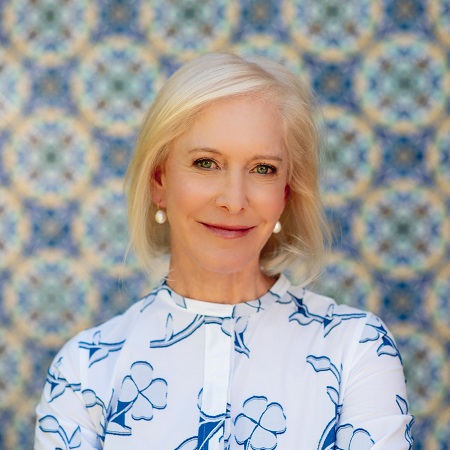
Wendy Schmidt is a philanthropist and investor who has spent nearly two decades creating organizations that work with communities around the world to advance clean energy, resilient food systems, healthy oceans and human rights. The critical interconnections between human activity, the land we live on and the ocean we depend upon are the central drivers of Wendy’s philanthropic work. Through a combination of grants and investments, Wendy’s philanthropic work supports research and science, community organizations, promising leaders and the development of innovative technologies. In 2024, Wendy co-founded Agog: The Immersive Media Institute, a groundbreaking initiative at the intersection of technology, communications and social impact. Wendy is president and co-founder of the Schmidt Family Foundation and Schmidt Ocean Institute, both of which she founded with her husband Eric. The couple also founded Schmidt Sciences, a nonprofit organization working to advance science and technology that accelerates and deepens human understanding of the natural world and develops solutions to global issues. A competitive sailor, Wendy has extended her oceans-focused work to the sporting world through 11th Hour Racing, an organization she co-founded to work with the sailing community and maritime industry to advance sustainable solutions and practices that protect and restore ocean health. Follow Wendy on Instagram, Twitter, Facebook and LinkedIn.
Advisors
Jared Cheshier
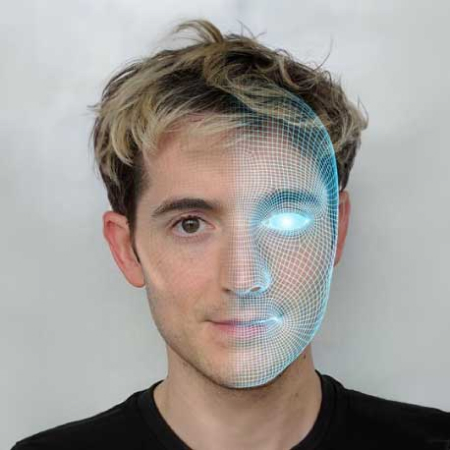
CEO/CTO, Pluto VR
Jared is a co-founder and CEO/CTO of Pluto VR. Pluto’s purpose is to help humanity transcend physical location, so everyone can connect with others as if they are in person regardless of where they are. Before co-founding Pluto VR, Jared was a partner at a Seattle-based development firm focused on mobile and emerging technology, where he helped develop several AR and VR projects for various clients. He has served in a range of roles at Microsoft and Valve and has an extensive track record of successful startups. Jared is a participant in the W3C Immersive Web Working Group and has been involved in the development of Khronos Group’s OpenXR standards.
Courtney Cogburn
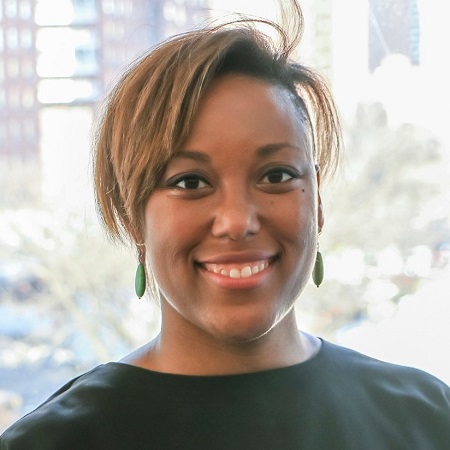
Associate Professor, Columbia University
Courtney D. Cogburn, PhD, directs research to improve the characterization and measurement of racism and its role in creating racial inequities in health. She also explores the use of emerging technologies to examine patterns and psychosocial effects of cultural racism and how virtual reality experiences can lead to changes in attitudes, social perception and engagement. Courtney is the lead creator of 1000 Cut Journey, an immersive virtual reality racism experience developed in collaboration with the Virtual Human Interaction Lab at Stanford University. At Columbia, she is on the faculty of the Columbia Population Research Center, is a faculty affiliate of the Center on African American Politics and Society, and is a core member of the Data Science Institute, where she co-chairs the Computational Social Science working group. She directs the Cogburn Research Group and co-directs the Justice Equity + Tech (JE+T) Laboratory at Columbia University. She is also a board member of the International Center Advocates Against Discrimination.
Nonny de la Peña

Founding Director, ASU Center for Emerging Media and Narrative
Peabody Award winner Nonny de la Peña, PhD, is the founder of Emblematic Group, which uses immersive technologies to develop content that creates intense, empathic engagement. Nonny has appeared on the cover of the Wall Street Journal Magazine as Technology Innovator of the Year, was inducted into the SXSW Hall of Fame, and was named one of CNET en Español’s 20 most influential Latinos in tech. Often called the “Godmother of Virtual Reality,” she is a New America Fellow, a Yale Poynter Media Fellow, and a former correspondent for Newsweek. Her latest breakthrough is Emblematic’s WebXR platform REACH.Love, a no-code toolset that creates scalable distribution, democratizes content authorship, and empowers new voices to share their stories. She is the founding director of the Arizona State University’s program for Emerging Media and Narrative, a research and graduate program focused on supporting diverse voices and emerging media technologies.
Loren Hammonds

Head of Documentary, TIME Studios
Loren Hammonds is a Peabody Award-winning producer and curator of Film, Television, and Immersive work. A NYC native who has worked in the entertainment industry for over 20 years, he is currently head of documentary at TIME Studios. He previously held the titles of vice president of Immersive Programming at Tribeca Enterprises and senior programmer at Tribeca Festival. Among his credits as an executive producer are THE TERRITORY (Nat Geo/Disney+,) Katrina Babies (HBO/ Max,) and MLK: NOW IS THE TIME (Meta). He is producer of the 2024 documentary feature film FRIDA for Amazon/MGM Studios. His views on cinematic and immersive storytelling have been featured in several publications and programs, including The New York Times, BBC Click, NPR, the Today show, and Vice. He has also been featured as a guest speaker at Cannes Film Festival, Sundance, SXSW, Columbia University’s Digital Storytelling Lab, Mutek, Pratt Institute, Scuola Holden, P&G Signal, and more.
Amy Seidenwurm
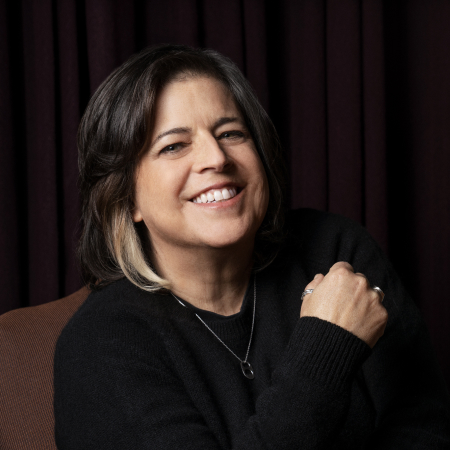
Founder, ANTLER
Amy Seidenwurm is a globally recognized innovator and technology leader, and the founder of ANTLER, a consultancy that deploys immersive and interactive experiences for social good. Previously, she was executive producer of Meta’s VR for Good initiative from 2016 to 2023, where she created VR experiences within the social impact space. Amy has produced award-winning VR projects that have been selected for more than 50 festivals and social good events, including Sundance, SXSW Film, Tribeca Film Festival, Skoll World Forum, Venice Film Festival, The Nobel Peace Museum, and the UN General Assembly. She ran digital initiatives for the Los Angeles Philharmonic and The Hollywood Bowl, where she produced a traveling orchestral VR experience called VAN Beethoven that brought classical music and VR to underserved arts communities in LA. Earlier in her career, Amy spent time as a record industry executive at Elektra, Virgin, and Sub Pop at the height of the grunge years in Seattle, before getting sucked into the technology vortex.
John Vechey
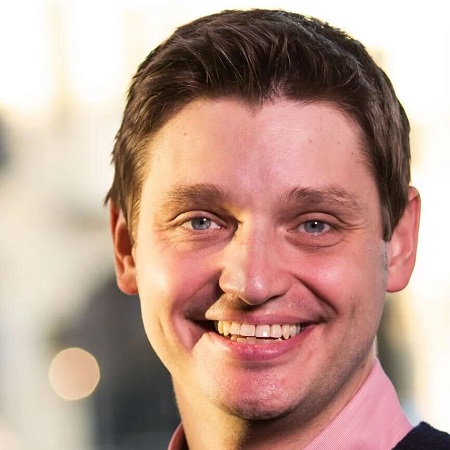
Cofounder, Pluto VR
John is a co-founder of Pluto VR, which allows people to access powerful XR applications, and use them with anyone, no matter their physical location. He has also served on the board of Grist and is an honorary board member of native-led Se’Si’Le. Previously, John co-founded and led PopCap Games for 15 years, helping to conceive of and produce popular video games like Bejeweled and Plants vs. Zombies. He has two kids, plays Irish music, and lives in the San Juan Islands of Washington state.
